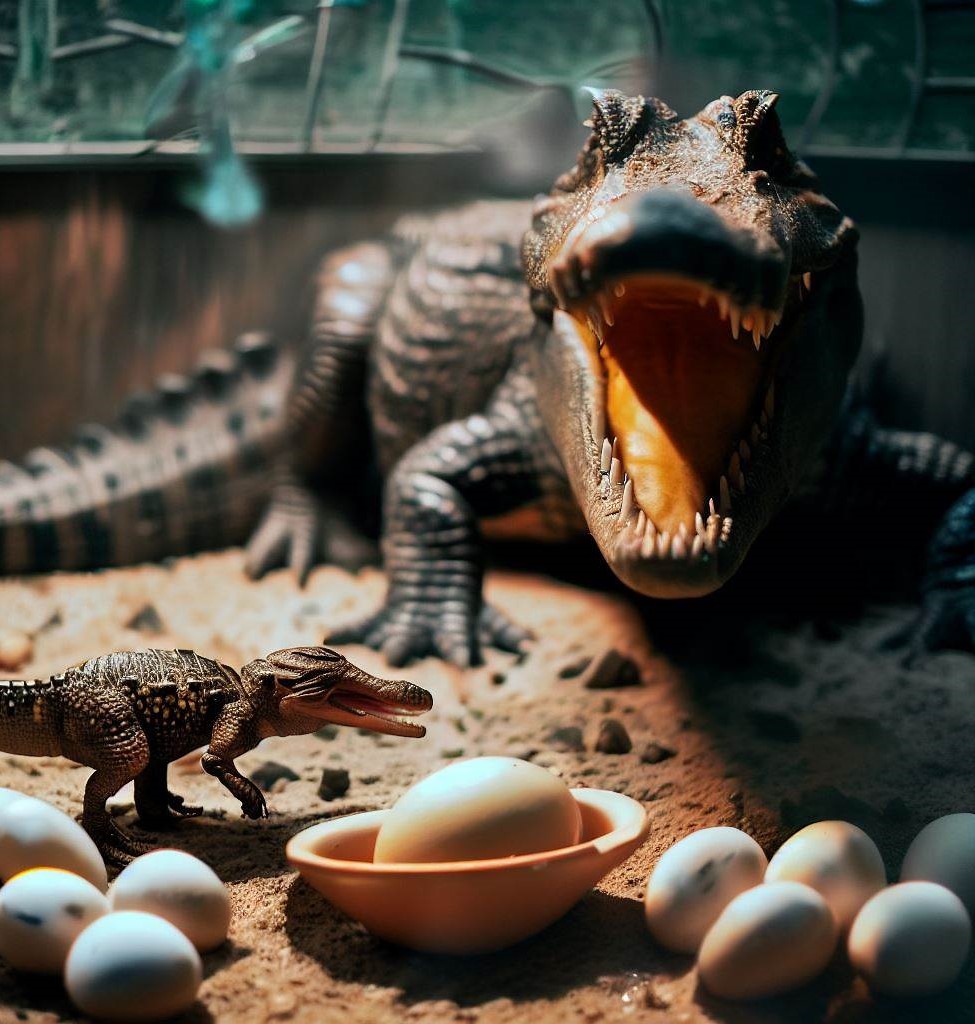In a shocking turn of events, scientists have discovered that a female crocodile living alone in a zoo in Sicily has given birth to a clutch of eggs that contained dinosaur embryos. The crocodile, named Giulia, had been isolated from any male crocodiles for 10 years before laying 13 eggs in 2020. One of those eggs was later found to have a fully formed dinosaur fetus inside, despite the fact that Giulia had never mated with any other crocodile.
The dinosaur fetus was identified as a Tyrannosaurus rex, one of the most fearsome predators that ever roamed the Earth. Researchers were baffled by how Giulia was able to produce such an ancient and extinct creature without any genetic input from a male partner. They concluded that Giulia had undergone a rare form of reproduction called parthenogenesis, or “virgin birth”, in which unfertilized eggs can develop into offspring.
Parthenogenesis is not uncommon among some animals, such as snakes, bees, and sharks, but this is the first time it has been observed in a crocodilian . It is also the first time that parthenogenesis has resulted in the rebirth of a dinosaur species that has been extinct for 66 million years. Scientists believe that Giulia somehow activated some dormant genes in her DNA that were inherited from her distant ancestors, who shared a common ancestor with dinosaurs.
“This is a miracle of nature and a testament to the resilience and adaptability of life,” said Dr. Noah Jones, a researcher at Harvard University and a co-author of the study that confirmed Giulia’s parthenogenesis. “We don’t know what triggered Giulia to switch to this mode of reproduction, but it could be a response to environmental stress or lack of mates. It could also be a sign of an ancient trait that has been preserved in some crocodiles for millions of years.”
The discovery of Giulia’s dinosaur offspring has sparked a debate among scientists and ethicists about whether to try to hatch the remaining eggs and bring back the dinosaurs to life. Some argue that it would be a unique opportunity to study these magnificent creatures and learn more about their biology and behavior. Others warn that it would be irresponsible and dangerous to revive animals that are not adapted to the modern world and could pose a threat to humans and other species.
“We have to be very careful about playing God with nature,” said Dr. Rachel Smith, an evolutionary biologist and critic of de-extinction projects. “Life is unpredictable and complex, and we can’t control all the variables and consequences. We have seen what happens when we mess with nature in other experiments. Do we really want to risk unleashing chaos?”
Giulia, meanwhile, seems oblivious to the controversy surrounding her miraculous progeny. She continues to live peacefully in her enclosure at Reptile Island, where she enjoys basking in the sun and eating fish. She has not shown any signs of maternal instinct or interest in her eggs, which are kept under strict surveillance by the zoo staff.
“She is a very special crocodile,” said Marco Zanetti, the owner of Reptile Island. “We love her very much and we are proud of her achievement. She is like our own little Mother Mary.”
